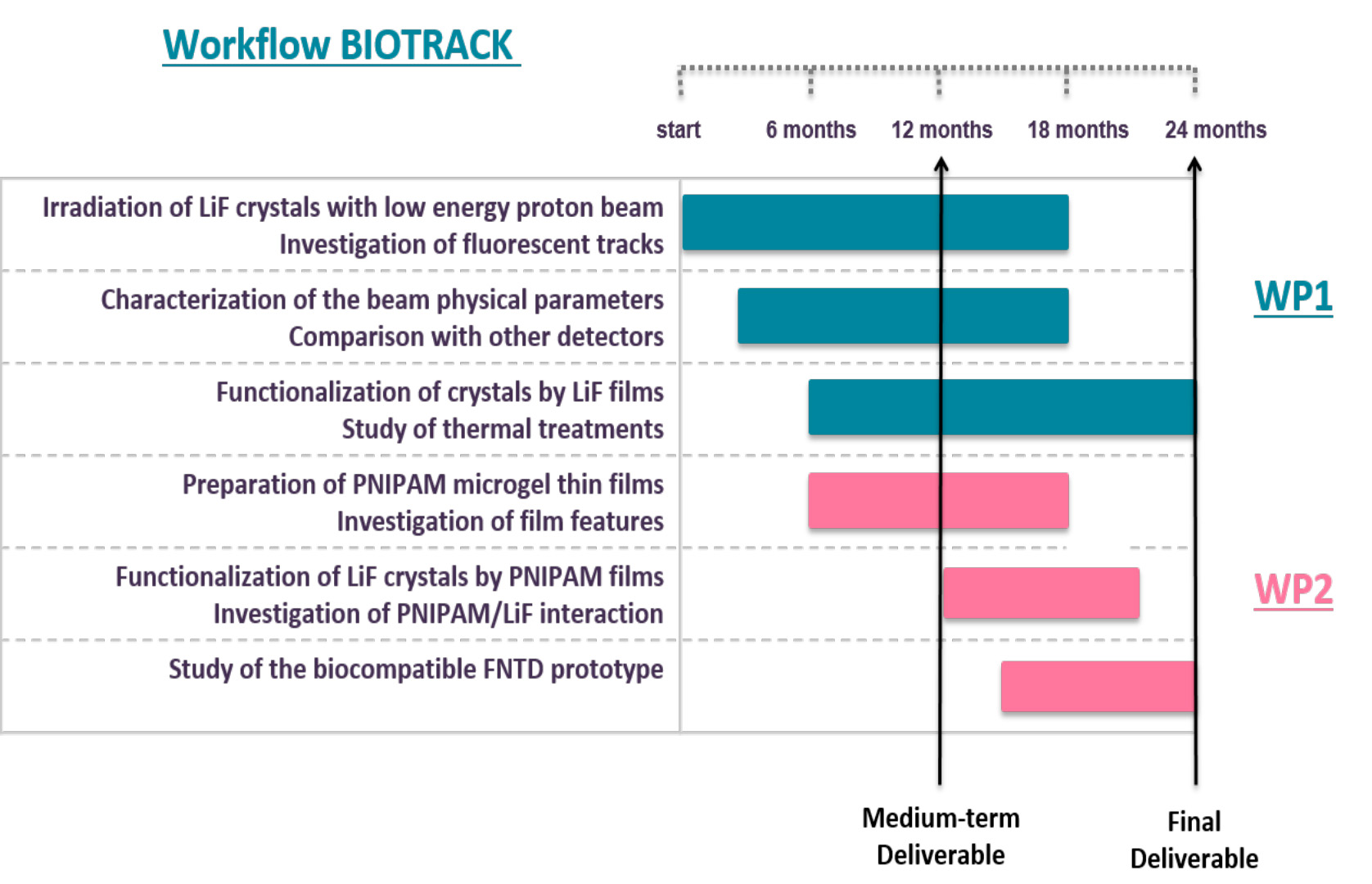Activities
The BIOTRACK project is organized into two research lines (“Work Packages” – WP) designed to achieve the specific objectives of the project:
WP1: INVESTIGATION, DEVELOPMENT AND CHARACTERIZATION OF FLUORESCENT NUCLEAR TRACK DETECTORS BASED ON LITHIUM FLUORIDE (ENEA-ISS)
Task 1.1: LiF irradiation with low-energy proton beams and characterization of fluorescent track detectors
Task 1.2: Characterization of the proton beam physical parameters and comparison of LiF with other detectors
Task 1.3: Functionalization of LiF crystals by LiF thin films and investigation of thermal treatments on fluorescence
WP2: EXPERIMENTAL INVESTIGATION OF THIN FILMS OF MICROGELS FOR BIOCOMPATIBLE FNTDs (ENEA-CNR)
Task 2.1: Preparation of thin films of PNIPAM microgels
Task 2.2: Study of the interaction between PNIPAM microgel thin films and LiF crystals/films
Task 2.3: Study of a prototype of biocompatible FNTD for radiobiological experiments
Duration 24 months, steps at 6, 12, 18 and 24 months.
Work Package 1
- Irradiation of LiF crystals with low energy proton beam. Investigation of fluorescent tracks: start of the project up to 18 months.
- Characterization of the beam physical parameters. Comparison with other detectors: start about 3 months up to 18 months.
- Functionalization of crystal by LiF films. Study of thermal treatments: start 6 months up to 24 months.
Work Package 2
- Preparation of PNIPAM microbes thin films. Investigation of film features: start 6 months up to 18 months.
- Functionalization of LiF crystals by PNIPAM films. Investigation of PNIPAM/LiF interaction:start 12 months up to 16 months.
- Study of the biocompatible FNTD prototype: start 18 months up to 24 months.
Medium-term deliverable: 12 months.
Final deliverable: 24 months.






